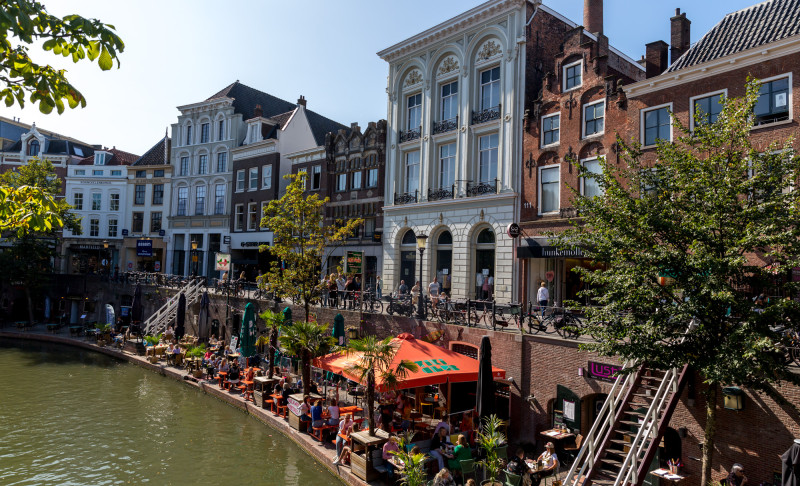
Dutch Culture in a European Context - Track
This special track offers you the opportunity to study European and Dutch culture in one of the oldest and most beautiful cities in the Netherlands: the city of Utrecht.

This special track offers you the opportunity to study European and Dutch culture in one of the oldest and most beautiful cities in the Netherlands: the city of Utrecht.
During the first two weeks you will analyse Europe’s cultural pluralism and its varied identities that still exist today. The topics you will study will help you to understand the complicated structure of Europe. We will shed some light on the motives for integration as well as the obstacles on the way to European unity. Lectures will focus on the history, social and economic structures, culture, and current political and social debates within the wider European community. In light of these last topics you will go on multiple field trips related to these topics.
After the first two weeks, you will focus more specifically on the Low Countries and on Dutch identity and heritage. Each week will have its own theme, the first of which is the art and history of the Low Countries. The lectures will give you an insight into the distinctive historical periods of Dutch history and what is preserved as heritage.
Heritage is what a social context wants to preserve in the present to enact certain futures. In the Low Countries, certain pasts have been preserved, and others have been deliberately forgotten. In this course, we study the mechanics and politics of heritage-making. Students engage with a series of heritage and art collections, learn about Dutch and Belgian culture and politics, and understand how heritage has shaped society and citizens.
You will then proceed with the third theme: society. Lecturers will discuss characteristic institutions and arrangements of Dutch society such as the welfare state and the polder model. You will learn about the real role of the windmills and about other factors that contributed to the economic success and international orientation of the Netherlands.
Finally, we will end with the theme ‘contemporary issues’. This topic explores public debates in Dutch society at the beginning of the 21st century. Topics that will be discussed are religious diversity and secularization, immigration and integration and Dutch traditions of cooperation reflected in the presence of the Peace Palace and the International Criminal Court in The Hague. There will be a full day excursion to The Hague which includes a visit to the Dutch Parliamentary building (Binnenhof).
Together, these six weeks will provide you with new and extensive insights into European and Dutch culture, from both inside and outside of the classroom.
Students with an interest in Dutch and European culture and history.
This course introduces participants to the social and cultural aspects of the nations within the European Community. It goes deeper into Dutch culture and identity by introducing participants to its history, society, art and culture. By studying the development of a united Europe and Dutch society, art and culture in an international context, students will be offered an incentive to reflect anew on their own culture and society in an international setting.
Students will take part in an intensive six-week programme with lectures and seminar groups. Together with other students they are expected to work on group presentations and assignments.
The housing costs do not include a Utrecht Summer School sleeping bag. This is a separate product on the invoice. If you wish to bring your own bedding, please deselect or remove the sleeping bag from your order.